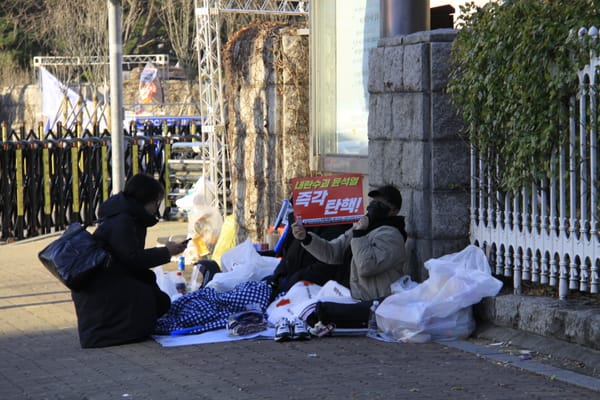Asia Undercovered Round-up: 5 May 2023
This week: Forced field trips to China, the battle for influence in Central Asia, and how a state police forced is implicated in extrajudicial killings in Bangladesh.
Undercovered last week
Now, students in Hong Kong are forced to go on mandatory field trips to China, part of a new curriculum aimed at indoctrinating students. What will happen if any express critical views? (Lea Mok, HKFP).
At the same time, the former chief executive of the disbanded Hong Kong Confederation of Trade Unions, Elizabeth Tang Yin-ngor, has been arrested and charged with what APWLD calls in this statement, “arbitrary charges.” Another sign of what little space remains for civil society under the National Security Law.
This is worrying. Thai authorities have deported three members of Myanmar opposition forces. APHR says in this piece that they are likely to be “be tortured, or worse.”
Meanwhile, according to Tharaphi Than, within the country, military violence is worsening amid fierce resistance and international ambivalence (The Conservation).
Worth reading: This in-depth, human-driven piece by several journalists for Mongabay explores how ban on farming in conservation zones around the Tonle Sap wetland in Cambodia is disrupting the lives of thousands of rice farmers.
In Pakistan, torrential rains have damaged the watermelon crop in Sahiwal, causing heavy losses to local farmers. This comes just a year after climate-connected floods, and alongside a worsening economic crisis in the country (Shafiq Butt, Dawn).
On a lighter note, enjoyed reading this piece by Sowmiya Ashok for FiftyTwo that explores the mysterious death of Indian independence hero Subhas Chandra Bose, who died in the then-Japanese colony of Formosa, now Taiwan.
Electoral Politics
Joko Widodo, Indonesia’s President, was an outsider running against the oligarchy. Today, he is the head of a growing political family, with his son a mayor and growing political ambitions (Jemma Pudrey, EAF).
In the next few months, two neighboring countries will hold elections – Thailand and Cambodia. But that is where the similarities end, writes Luke Hunt in this piece exploring the state of democracy on both sides of the border (The Diplomat).

Geopolitics
This is interesting. Two new entrants are looking to expand their influence in Central Asia – Japan and India, says Ved Shinde for East Asia Forum. The goal? Provide an alternative to Chinese investment and initiatives.
Worth watching: A Hong Kong student was arrested for posting pro-independence messages while in Japan two years ago. Notably, Japan voiced concerns about this blatant violations of free press, a sign of growing willingness to speak out against China (HKFP).

Solutions Stories
In 2022, democratic rule returned to Fiji. But it was too late for former prime minister Laisenia Qarase, removed from power after a coup d-etat in 2006 and who spent most of his final years imprisoned. For Lowy Interpreter, Ariela Zibiah reviews a book about this life, and the lessons under a dictator’s heel for not only Fiji, but any young democracy.
For Nielson Lab, Hanaa' Tameez illuminates how Mafindo, a citizen-run initiative, is countering disinformation through crowdsourcing fact-checking in Indonesia, with real impact.

Reporting Done Right

This deeply reported piece by Deutche Welle, takes an in-depth look into Bangladesh’s Rapid Action Battalion, which they find is committing extrajudicial killings that are likely approved by high-ranking officials.
It brings together local and national reporters from Netra News, and highlights an issue that is likely too sensitive to be published in local media. This is, in my opinion, the ideal role of global media – fill in the gaps, and bring to light stories that can’t be told otherwise.

Asia Undercovered: Round-ups and in-depth analysis of the news, events, trends and people changing Asia, but not getting enough attention in the US media.



